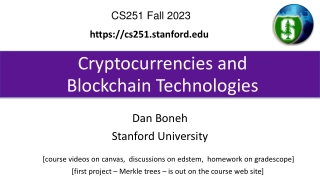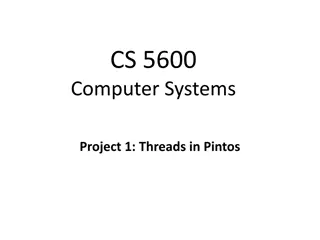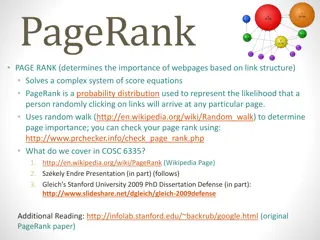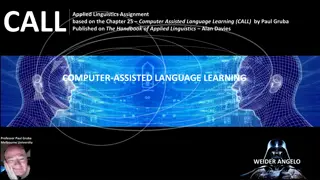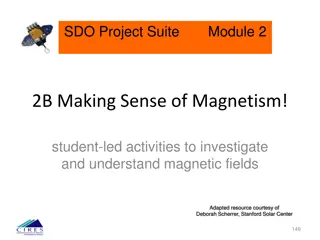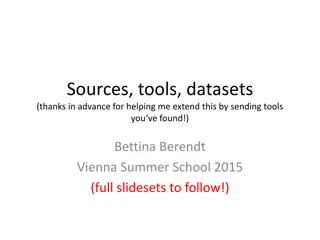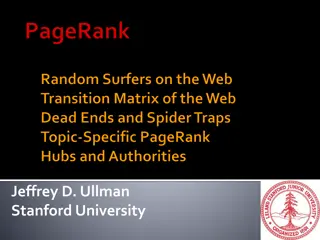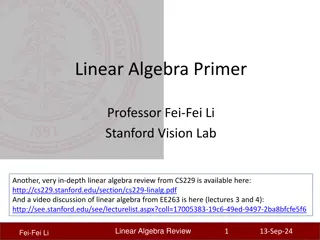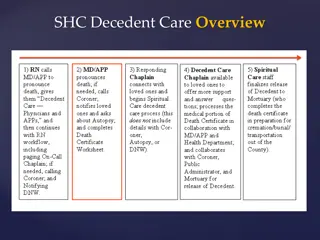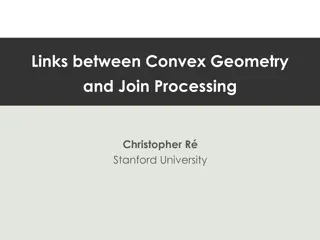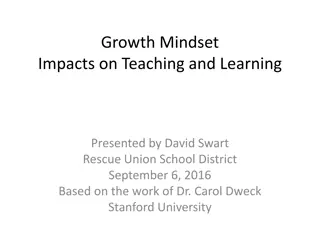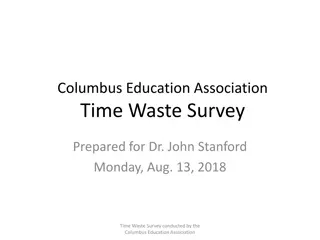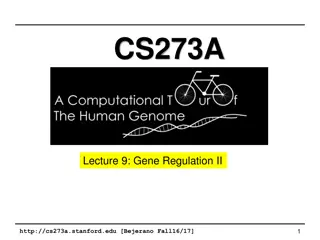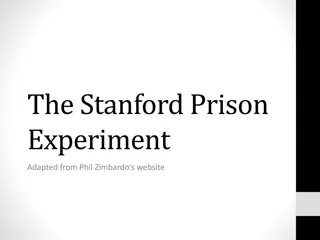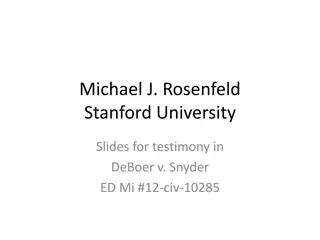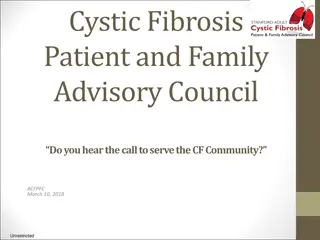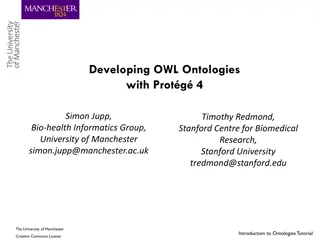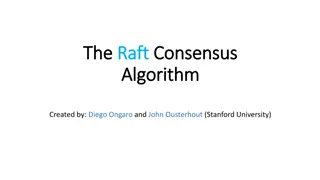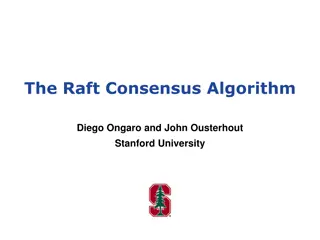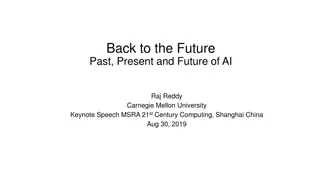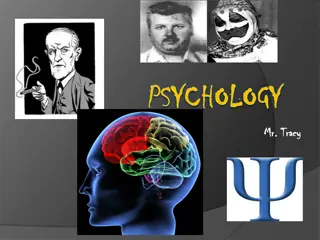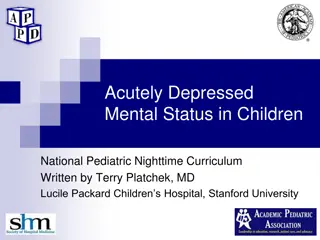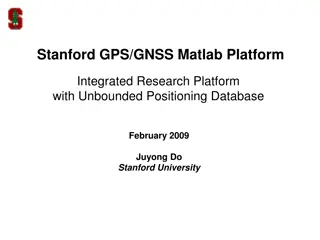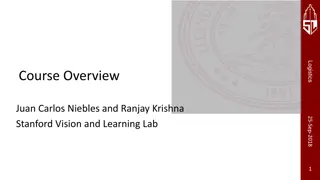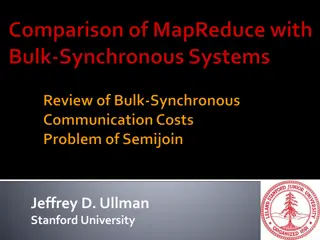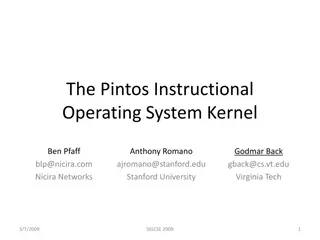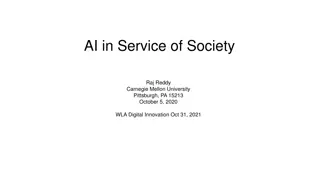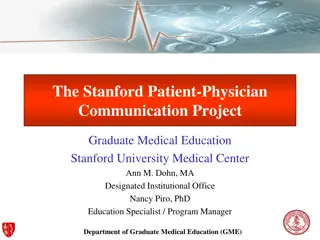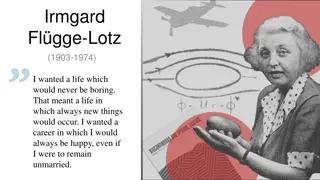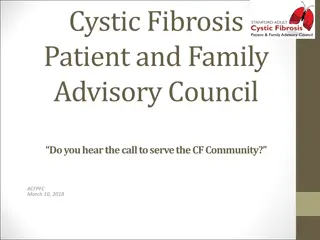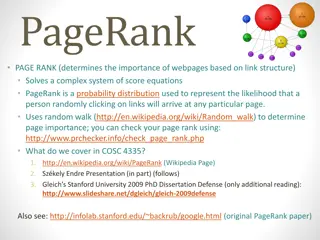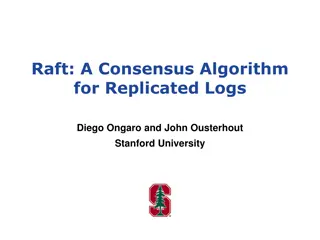Cryptocurrencies and Blockchain Technologies
Join the CS251 course at Stanford University to learn about cryptocurrencies and blockchain technologies. Access course videos on Canvas, participate in discussions on Edstem, and complete homework on Gradescope. Explore the first project on Merkle trees available on the course website.
3 views • 46 slides
North America Leads the Charge in Black Phosphorus Adoption
The black phosphorus market is mainly driven by the increasing demand for gas sensors in critical industries and the implementation of various health and safety regulations globally. The key market players profiled in the report include ACS Material LLC (US), 2D Semiconductors (US), Nanochemazone (
1 views • 3 slides
CSCI0020 - CS2 The Digital World Fall 2023 Course Information
Welcome to CSCI0020, also known as CS2 - The Digital World! Meet Adjunct Professor Don Stanford, explore course details, teaching assistants, and resources. Engage with TAs who are here to support you. Course materials, lecture videos, and important updates can be found on the CS2 website. Stay conn
1 views • 53 slides
Understanding Child Abuse and Neglect in the 21st Century
Child abuse and neglect are serious issues affecting millions of children worldwide. This course by presenter Veronica Stanford sheds light on identifying, reporting, and preventing various forms of maltreatment, including physical abuse, sexual exploitation, and neglect. The content delves into the
1 views • 30 slides
Introduction to Pintos Operating System for Computer Systems Projects
Pintos is a teaching operating system developed by Stanford University, written in C. It provides enough functionality to boot, perform basic device I/O, and includes a small standard library. The goal of using Pintos is to expand its functionality through a series of projects across different direc
2 views • 36 slides
Guide to Graduate Medical Education (GME) at Stanford Health Care
GME at Stanford Health Care sponsors over 120 ACGME residencies and fellowships, with a diverse team dedicated to supporting trainees. Communication with the office is accessible through email, phone, and in-person visits. The team members, led by Ann Dohn, offer various resources and facilities suc
0 views • 16 slides
Corporate Governance Failures and Best Practices in Financial Institutions
Explore the repercussions of poor corporate governance through case studies of Hindu Credit Union, CLICO, and Stanford International Bank, highlighting the critical importance of regulatory oversight, board effectiveness, and risk management. Learn the fundamentals of corporate governance and discov
0 views • 29 slides
Understanding PageRank: Importance of Webpages and Link Structure
PageRank, a probability distribution determining webpage importance based on link structure, utilizes a random walk to assess page significance. It employs a Surfer Model to identify important pages within a web structure. This algorithm, developed by Larry Page and Sergey Brin at Stanford Universit
0 views • 41 slides
Evolution of Computer-Assisted Language Learning: A Historical Overview
Delve into the evolution of Computer-Assisted Language Learning (CALL) from the mainframe era at Stanford University in the 1960s to the introduction of personal computers in the 1980s and the internet era of the 1990s. Explore key developments, such as the shift from mainframe to PC, the growth of
1 views • 9 slides
Understanding Magnetic Fields Through Student-Led Activities
Explore the fascinating world of magnetism with student-led activities to investigate and comprehend magnetic fields. Discover the properties of magnetic poles, observe magnetic field lines, and learn about the history and significance of magnets on Earth. Engage in hands-on experiments and discussi
0 views • 12 slides
Power, Decision Making, and Rules in a School Environment
Explore the dynamics of power, decision-making, and rules within a school setting, analyzing concepts such as Locke's Social Contract, the Stanford Prison Experiment, and the distribution of power among stakeholders like teachers, students, and administrators. Reflect on safety rules, enforcement, a
0 views • 15 slides
Exploring Sources, Tools, and Datasets in Text Mining
Discover a plethora of sources, tools, and datasets in text mining through resources shared by Bettina Berendt and references from lectures and publications. Uncover DH-specific tools and powerful NLP tools like Ling Pipe, OpenNLP, Stanford Parser, and NLTK Toolkit for text analysis and processing.
0 views • 17 slides
Understanding PageRank Algorithm: A Comprehensive Overview
The PageRank algorithm plays a crucial role in determining the importance of web pages based on link structures. Jeffrey D. Ullman from Stanford University explains the concept of PageRank using random surfer model and recursive equations, emphasizing the principal eigenvector of the transition matr
0 views • 55 slides
Ready for Kindergarten: Essential Skills for Success
Discover the significance of age readiness for kindergarten based on Stanford study findings, emphasizing the benefits of starting kindergarten at six. Explore the critical skills required for a successful transition to kindergarten in reading, math, and social aspects, ensuring your child is prepar
0 views • 13 slides
Linear Algebra Overview and Resources at Stanford
Explore a comprehensive overview of linear algebra concepts, operations, and applications through resources from Stanford University's CS229 and EE263, featuring in-depth reviews, matrices, vectors, transformations, SVD, PCA, and more.
0 views • 77 slides
Decedent Care Guidelines for Physicians and APPs at Stanford Health Care
In this guide, physicians and advanced practice providers at Stanford Health Care are provided with detailed instructions on handling decedent care from reporting to the coroner to completing the death certificate. The guide includes steps for contacting the Medical Examiner-Coroner's Office, addres
1 views • 5 slides
Exploring Links Between Convex Geometry and Query Processing
Delve into the intersection of convex geometry and query processing at Stanford University, where theoretical discussions are being applied to real-world database engine development. Learn about the optimization of database joins, the historical evolution of database engines, and the challenges face
0 views • 54 slides
Understanding the Impact of Growth Mindset on Teaching and Learning
Explore the profound influence of a growth mindset on education, as presented by David Swart from Rescue Union School District in 2016, based on the groundbreaking work of Dr. Carol Dweck from Stanford University. Discover how cultivating a growth mindset can revolutionize teaching, learning, parent
0 views • 20 slides
Columbus Education Association Time Waste Survey 2018 Summary
The Columbus Education Association conducted a Time Waste Survey as suggested by Dr. John Stanford to address redundant tasks in the 2018-2019 school year. The survey, based on a similar one from 2014, gathered data on avoidable tasks. Demographic summaries and responses were analyzed, with insights
0 views • 34 slides
Understanding Gene Regulation Through Lecture 9 at Stanford
Dive into the intricate world of gene regulation with Lecture 9 of CS273A at Stanford University. Explore the mechanisms and complexities of how genes are controlled, with a focus on transcriptional regulation. The lecture covers topics such as genetic switches, transcription factors, and regulatory
0 views • 60 slides
Exploring the Impact of UI Design on Disinformation Distribution
This web-based interactive essay and UX project delves into the world of disinformation online through the lens of product design. By analyzing the design elements and features of user interfaces, the project aims to understand how they influence the spread of false information and deception. The ex
0 views • 7 slides
Understanding the Stanford Prison Experiment
Explore the infamous Stanford Prison Experiment conducted by Phil Zimbardo, where college students were assigned roles of prisoners and guards in a simulated prison environment. Witness the rapid deterioration of behaviors and mental states, leading to the premature halt of the study. Delve into the
0 views • 16 slides
Factors Affecting Children's Progress in Primary School
The data presented in the slides from Michael J. Rosenfeld at Stanford University for the testimony in DeBoer v. Snyder sheds light on various factors influencing children's progress through primary school. The analysis considers family type, household income, child's gender, metro status, household
0 views • 18 slides
Stanford Adult CF Patient & Family Advisory Council Initiatives
The Stanford Adult CF Patient & Family Advisory Council (CF-PFAC) is actively involved in projects aimed at enhancing the patient and family experience at Stanford Health Care and the Cystic Fibrosis Center. Initiatives include creating a memorial space, detailing the journey to transplant, capturin
0 views • 12 slides
Introduction to Developing OWL Ontologies with Protégé 4
Explore the world of developing OWL ontologies with Protégé 4 through a comprehensive tutorial by Simon Jupp and Timothy Redmond from Stanford Centre for Biomedical Research and the University of Manchester. Learn about OWL introduction, Protégé 4 interface, compositional approach, and the signi
0 views • 44 slides
Understanding the Raft Consensus Algorithm: Basics and Leader Election
Raft is a consensus algorithm designed by Diego Ongaro and John Ousterhout at Stanford University for practical systems. It simplifies understanding through leader-follower structure and terms for leader election. Nodes transition between Follower, Leader, and Candidate states, initiating elections
0 views • 21 slides
The Raft Consensus Algorithm: Simplifying Distributed Consensus
Consensus in distributed systems involves getting multiple servers to agree on a state. The Raft Consensus Algorithm, designed by Diego Ongaro and John Ousterhout from Stanford University, aims to make achieving consensus easier compared to other algorithms like Paxos. Raft utilizes a leader-based a
0 views • 26 slides
Evolution of AI: Past, Present, and Future Milestones
Explore the history of Artificial Intelligence (AI) from the 1960s golden age to recent breakthroughs in speech recognition, robotics, and more. Delve into key projects at Stanford AI Labs, significant advancements in AI technologies, and reflections on the evolution of AI and computer science. Disc
1 views • 33 slides
Exploring Psychology: Insights into Behavior and Intelligence
Dive into the intriguing world of psychology, analyzing behaviors like drawing a pig and interpreting intelligence scales like the Stanford-Binet Scale. Understand the implications of drawing styles, IQ levels, and the essence of psychology as the study of behavior and mental processes.
0 views • 19 slides
Understanding Acutely Depressed Mental Status in Children
Exploring the mental status of acutely depressed children is crucial for early intervention and support. Terry Platchek, MD, from Lucile Packard Children’s Hospital at Stanford University, provides valuable insights in the National Pediatric Nighttime Curriculum.
0 views • 16 slides
Stanford GPS/GNSS Matlab Platform Overview
Stanford GPS/GNSS Matlab Platform (SGMP) is an integrated research platform developed at Stanford University for GPS research activities. The platform provides tools for utilizing GPS/GNSS measurements in various formats, converting positioning databases, simulation capabilities, and user interfaces
0 views • 21 slides
Computer Vision Course Overview at Stanford University
Explore the logistics of the Computer Vision course at Stanford University presented by Juan Carlos Niebles and Ranjay Krishna from the Stanford Vision and Learning Lab. The overview covers the course agenda, instructor details, office hours, contacting TAs, syllabus, grading policy, and the overall
0 views • 15 slides
Introduction to Distributed Computing at Stanford University
A meeting at Stanford University's Gates building tonight for those interested in CS341 in the Spring. The session will cover the concept of viewing computation as a recursion on a graph, techniques like Pregel, Giraph, GraphX, and GraphLab for distributed computing, and challenges in data movement
0 views • 18 slides
Overview of the Pintos Instructional Operating System Kernel Project
Description of the Pintos Operating System Kernel project, including its use in educational settings at institutions such as Stanford University and Virginia Tech. The project aims to provide students with a hands-on experience in OS design, focusing on the internal workings of the kernel. Pintos fe
0 views • 33 slides
Advancements in AI and Society: A Journey Towards a Brighter Future
Over the past decades, AI has made significant strides in revolutionizing various aspects of society, from enhancing human mental capabilities to enabling breakthroughs in machine learning and big data applications. Renowned figures like Raj Reddy have played key roles in advancing AI research, with
0 views • 9 slides
Enhancing Patient-Physician Communication in Graduate Medical Education
The Graduate Medical Education at Stanford University is focused on improving patient-physician communication through quality improvement projects led by Chief Residents. The initiative aims to address patient satisfaction by implementing the C-I-C-A-R-E method and encouraging residents to systemati
0 views • 23 slides
Trailblazing Women in Mathematics and Engineering
Irmgard Flügge-Lotz, a German mathematician, contributed to aviation theory and became the first female engineering professor at Stanford University. Nina Thornhill, a British innovator, focuses on sustainable industrial systems. Both women excelled in their fields and received prestigious honors f
0 views • 6 slides
Stanford Adult Cystic Fibrosis Patient Advisory Council Initiatives
The Stanford Adult CF PFAC works to enhance patient and family experiences at Stanford Health Care's Cystic Fibrosis Center. Initiatives include establishing a memorial space, exploring home FEV1 monitoring, capturing patient encounters for teaching, and collaborating with the CFF for clinic develop
0 views • 11 slides
Understanding PageRank Algorithm and Its Importance in Web Search
The PageRank algorithm determines the importance of webpages based on their link structure, using a probability distribution to represent the likelihood of randomly arriving at a particular page via clicking on links. PageRank employs a random walk approach, and its Surfer Model analyzes web structu
0 views • 41 slides
Raft: A Consensus Algorithm for Replicated Logs Overview
Raft is a consensus algorithm developed by Diego Ongaro and John Ousterhout at Stanford University. It aims to ensure replicated log clients and consensus modules maintain proper log replication and state machine execution across servers. Raft utilizes leader election, normal operation for log repli
0 views • 31 slides
